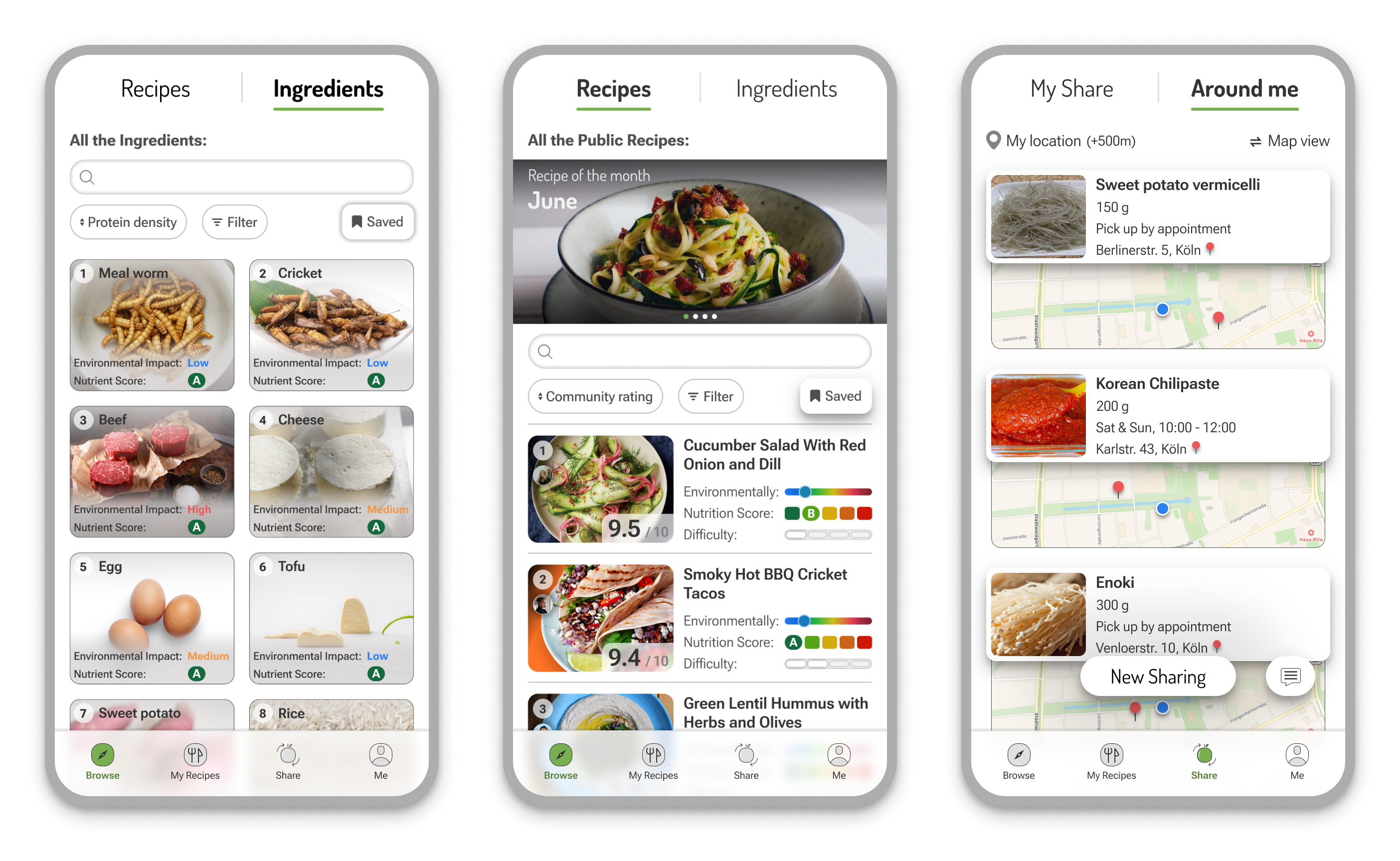ANOTHER_RECIPE_APP
A way of promoting edible insects
2022.
Edible insects are a promising meat replacement because of global warming. However, people in the West are unfamiliar with insect-based food, and the acceptance of insect-based food in the West is low. The theory of planned behavior suggests that people’s actual behavior is the result of their attitude towards the behavior, subjective norm, and perceived behavior control. Therefore, people who dislike insects will be unlikely to eat insects, but not hating insects doesn’t necessarily mean eating insects because consuming insect-based food is not part of the Western culture.
Instead of changing all the people’s attitudes toward insect-based food, my design solution is targeting the people who already have sustainability in their minds. Since adapting to a sustainable food source is already in their belief, and edible insects are a sustainable food source, this group of people will have a higher possibility to adapt insect-based food as part of their diet. As more and more people adapt to insect-based food, the social norm will gradually change, and other people’s attitudes toward edible insects will also change. A positive feedback loop would be created.
Together with the empirical study result, I came up with the idea of a sustainable recipe application, which is a great place to introduce insect-based food to people with sustainability in mind. To ensure a better user experience, the app's functions are designed according to motivation psychology. A motivated action is decided by person factors and situation factors. People with a sustainable mind already have sustainability as their goal(a person factor), the app should then create situations that complement their personality and goal.
Besides self-determination theory, motive disposition theory(MDT) is another well-known theory that uses human needs to explain personality and motivation. MDT differentiates motives as explicit and implicit, and it further introduced the fear and hope components of implicit motives. There are three common motives, namely, achievement motive, power motive, and affiliation motive. Accordingly, there are six subcategories of these motives:
- Hope for achievement
- Fear of failure
- Hope for power
- Fear of weakness
- Hope for affiliation
- Fear of rejection
The design of the app takes into consideration of these 6 forms of motive. The app has three main functions: 1. browsing sustainable recipes and ingredients, 2. creating recipes, and 3. ingredients sharing.
- Each recipe shows its difficulty. Users with the hope for achievement could be attracted by the medium difficulty; users with the fear of failure could be attracted by the low or high difficulty.
- Users can create public recipes which then will be rated by other users. This could motivate users with hope for achievement and affiliation. Additionally, for users with the fear of failure, rejection, and weakness, they have the option to set the recipe to private.
- When users’ recipes received high ratings, they will have a bigger voice in rating other users’ recipes, which could motivate users with the hope for power.
- Users can share their surplus ingredients with other users close by. This could motivate users with the hope for affiliation since this creates opportunities to establish relationships with other people. For users with the fear of rejection, it is their choice to use or not use this feature.
